What Research Tells Us
Written by Mark Schonbeck and OFRF staff
We recently launched a new newsletter section, “Ask OFRF,” a place where our community can submit questions for our staff to answer. Our first question came from Brian Caldwell of Hemlock Grove Farm, a certified organic farm in NY.
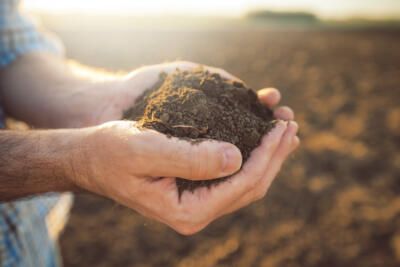
The life within our soils provides the foundation for successful farming and all terrestrial ecosystems. The diverse community of soil organisms—bacteria, fungi, protozoa, worms, and more—forms what we now call the soil food web. This web of life converts fresh residues into soil organic matter (SOM) and supports essential soil functions critical for agricultural production. Ever since the early 20th century, pioneers of organic agriculture like Sir Albert Howard and Ehrenfried Pfeiffer understood that “if you feed the soil, the soil will feed the plant.” Yet, despite their insights, mainstream agricultural science of the time often overlooked the vital role of soil life in plant nutrition.
In recent decades, extensive research has begun to illuminate how an optimally functioning soil biota feeds crops, enhances resilience, protects water quality, and contributes to long-term farm viability. However, concerns about the impact of agrochemicals, including herbicides and synthetic fertilizers, on soil health and soil life remain pressing.
Recently an important question was raised:
“Do you know if there is much research on the impacts of herbicides and synthetic fertilizer on SOM or soil health? Organic pioneers reported that soil health declined under chemical fertility management. For reasons that are not clear to me, some scientists discount the Morrow plot findings of Khan et al (2007), which support that. Do you have other research reports on that topic?”
To address this, we turned to OFRF’s Senior Research Associate, Mark Schonbeck. A respected researcher and long-time advocate for organic farming systems, Mark has dedicated his career to exploring the complex interactions between soil management, crop resilience, and farm sustainability. With his extensive knowledge, Mark offers valuable insights into the impacts of herbicides and synthetic fertilizers on SOM and overall soil health. Here’s what he has to say (all resources can be found at the end of this post):
Expert Insights from Mark Schonbeck on Soil Health
There is a growing body of research showing that all classes of crop protection chemicals (insecticides, fungicides, herbicides, nematicides, etc.) adversely affect all major taxa of soil organisms. From prokaryotes (bacteria and archaea) and fungi through nematodes, micro-arthropods (mites, springtails, etc), earthworms, and more, the soil biotic community is harmed by chemical applications. In fact, routine use of conventional agricultural chemicals have shown greater negative impacts on soil microbiomes than routine tillage in several recent meta analyses.
As for synthetic fertilizers and the Khan and Mulvaney analyses out of the University of Illinois, those papers (this one and this one) included not only the results from the Morrow plots themselves but also a review of a large number of other medium to long-term (5-100+ year) farming systems trials around the world. I used to emphasize those findings, which show that adding synthetic Nitrogen (N) undermines soil carbon sequestration as clear evidence that synthetic Nitrogen, Potassium, Phosphorous (NPK) fail to build Soil Organic Matter (SOM) despite higher crop biomass, and even sometimes burns up SOM.
In a 2023 personal conversation, Dr. Ray Weil of University of Maryland (whom I respect highly as a world-class soil scientist) raised concerns about the reliability of the Khan and Mulvaney papers during a National Institute of Food and Agriculture (NIFA) project meeting (for OREI and ORG) in Washington, DC in 2023. He shared that the studies are being questioned because those showing negative impacts of soluble NPK on SOM may have been selectively chosen in the literature review while those showing positive or neutral effects were de-emphasized. Recent research suggests that soluble fertilizer used along with organic inputs can build SOM and I believe that it is more a matter of what soluble fertilizer by itself lacks and not what it contains that can harm soil life. Recent research suggests that it’s not the presence of soluble nitrogen itself that harms soil health, but rather the imbalance between N and organic carbon inputs.
If a farmer is providing lots of organic inputs (high biomass cover crops, compost, etc.) and then uses some synthetic N or NPK, the yield increase elicited by the synthetic fertilizer can indeed improve SOM accrual. There was at least one meta-analysis comparing organic, organic + synthetic, and synthetic-only fertilization on microbial (fungal and bacterial) biomass. The result was: organic ~ organic + synthetic >> synthetic only (with a highly significant two-fold difference).
 When it comes to fertility and nutrient sources and soil life or SOM, it is a matter of balance between organic carbon inputs and nitrogen inputs (whether organic and/or synthetic). When there is sufficient organic carbon (C) and the C:N ratio is balanced (~15-25:1), the soil life thrives and microbial biomass and respiration increase, as does the formation of stable mineral-associated organic matter (MAOM) and more labile or active particulate organic matter (POM)—both important to the functions of healthy soil.
When it comes to fertility and nutrient sources and soil life or SOM, it is a matter of balance between organic carbon inputs and nitrogen inputs (whether organic and/or synthetic). When there is sufficient organic carbon (C) and the C:N ratio is balanced (~15-25:1), the soil life thrives and microbial biomass and respiration increase, as does the formation of stable mineral-associated organic matter (MAOM) and more labile or active particulate organic matter (POM)—both important to the functions of healthy soil.
If the C:N ratio is too narrow (for example poultry litter is 7:1), less SOM accrues and the soil microbiome is less capable of cycling N to ensure crop nutrition while minimizing leaching and denitrification losses. In an organic systems study, researchers at Washington State University found that vegetable rotations fertilized with compost (C:N ~20) accrued much more SOM (active and total) and sustained higher microbial activity and function than vegetable rotations fertilized with poultry litter (7:1) at the same total N rate. Crop yields were similar in the two systems. (More on that here).
In conclusion, the intricate relationship between chemical inputs, soil health, and agricultural productivity is a complex one. As research continues to illuminate the complexities of soil ecology, the importance of organic practices in preserving this vital resource becomes increasingly apparent. To foster sustainable agricultural practices, a holistic approach is essential. A transition to more organic and regenerative agricultural systems is essential for ensuring the health of our planet and future generations. Prioritizing soil health through practices like cover cropping and organic matter incorporation is crucial for long-term agricultural success. By understanding the complex interactions between soil organisms, nutrients, and crop production, we can develop strategies to enhance both yield and environmental sustainability.
A Deeper Dive: Key Studies and Findings
The following is a series of excerpts from a webinar Mark gave on Soil Disturbance, where he dives more into each of these topics, including specific studies that are relevant to this question.
The Case of Glyphosate: making sense of conflicting results 
While the overall impact of pesticides on soil health is clear, the specific effects of individual chemicals can be more nuanced. Glyphosate, the most widely used herbicide in conventional agriculture across the world, is a prime example of this complexity.
There are plenty of studies showing everything from no harmful effect to subtle yet alarming disruptions to plant physiology, soil microbiology, or ecosystem functions due to glyphosate applications. Here are a sample of findings:
- Experiments were conducted within long-term farming systems trials at Beltsville, MD and Stoneville, MS to determine whether foliar applications of glyphosate at normal rates (two applications at 0.75 lb active ingredient per acre) would affect rhizosphere microbiomes (Kepler et al., 2020). Glyphosate-resistant (GR) corn and soybean cultivars were planted in plots with (conventional) or without (organic at Beltsville, unsprayed perennial grass at Stoneville) a history of glyphosate use, and either foliar-sprayed with the herbicide or left untreated. Root and root zone soil samples collected 20 days after treatment showed no differential effect of glyphosate sprays on endophytic, rhizosphere, or bulk soil microbiomes (Kepler et al. 2020).
- Field applications of glyphosate at 1⁄4 and 1X recommend rates sharply (>80%) reduced the spore viability of arbuscular mycorrhizal fungi (AMF) in soil samples collected 10 or 30 days after field application and reduced the ability of AMF to form functional arbuscules in ryegrass (Lolium multiflorum) roots (Druille et al., 2013).
- Application of glyphosate at roughly half-label rates to orchard grass, dandelion, or white clover growing in greenhouse mesocosm trials (large pots, 12-gallon capacity) significantly reduced the activity and reproductive success of two earthworm species (Lumbricus terrestris and Apporectodea caligenosa) that were introduced into the pots five weeks before treatment (Gaupp-Berghausen et al., 2015). Herbicide treatment also caused a sharp increase in soluble soil N and a slight increase in soluble P. Field studies would be needed to clarify the practical implications of these greenhouse observations for earthworms, soil health, and water quality in agricultural production.
- A study of the prevalence of wheat head blight caused by two species of Fusarium in wheat production in Saskatchewan showed an apparent positive association between the disease and a history of glyphosate use (Fernandez et al., 2009).
- Ten years of field trials in Missouri showed significantly increased root colonization by Fusarium fungi of glyphosate-resistant corn and soybean treated with the herbicide compared to the same crop cultivars without herbicide treatment. Glyphosate treatment also appeared to affect soil microbes involved in manganese (Mn) availability, N fixation, and disease suppression (Kremer and Means, 2009). It is notable and surprising that this trial gave such different results from Kepler et al. (2020). One possible factor is different regions and soil types. In a review of 67 published studies of the impacts of herbicides on soil invertebrates (arthropods, earthworms, pot worms, and nematodes), 77% of “tested parameters” studied in lab experiments and 32% of parameters in field conditions showed negative impacts (Gunstone et al., 2021).
 Glyphosate showed adverse effects in some studies, and no effect in others, and appeared less damaging to soil life than amide/anilide herbicides and most insecticides and fungicides. Possible mechanisms of glyphosate effects on soil life include direct exposure via spray reaching the soil surface or translocation of the chemical from sprayed foliage to the root system, changes in the physiological condition of treated plants that curtail or alter the composition of root exudates including chemical signals, and long-term effects of low-level herbicide exposure year after year. One concern is that, given its frequent and widespread use and sometimes overuse, glyphosate may exert significant agroecosystem impacts despite its relatively low toxicity compared to other crop protection chemicals.
Glyphosate showed adverse effects in some studies, and no effect in others, and appeared less damaging to soil life than amide/anilide herbicides and most insecticides and fungicides. Possible mechanisms of glyphosate effects on soil life include direct exposure via spray reaching the soil surface or translocation of the chemical from sprayed foliage to the root system, changes in the physiological condition of treated plants that curtail or alter the composition of root exudates including chemical signals, and long-term effects of low-level herbicide exposure year after year. One concern is that, given its frequent and widespread use and sometimes overuse, glyphosate may exert significant agroecosystem impacts despite its relatively low toxicity compared to other crop protection chemicals.
Pesticide Impacts on Soil Organisms: A Quantitative Perspective
To gain a clearer picture of the extent to which pesticides affect soil organisms, it is essential to examine quantitative data from multiple studies. A recent meta-analysis provides valuable insights into this complex issue. The following is another excerpt from the Soil Disturbance webinar:
- In an extensive review of 398 studies that included a total of 2,842 tested parameters, Gunstone et al. (2021) evaluated the impacts of five classes of crop protection chemicals—insecticides, herbicides, fungicides, bactericides, and mixtures of two or more chemicals—on a wide range of soil invertebrates including nematodes, annelids (earthworms and pot worms), and arthropods (mites, springtails, insects, centipedes, etc). The authors defined a “tested parameter” as the chemical’s effect on one aspect of the health of one species or larger taxonomic group of soil organisms—the survival, growth, reproduction, or a behavioral or physiological function of the organism studied. Most studies addressed multiple organisms and/or multiple indicators of pesticide impacts on a single organism. All classes of pesticides affected all groups of organisms with negative impacts found in 70% of tested parameters. Lab studies found negative impacts more often (81%) than field trials (53%), and the field studies found more negative impacts of insecticides (61%) than fungicides (38%) or herbicides (32%). Earthworms were the most widely studied organisms (1,321 tested parameters) and showed sensitivity to all classes of agrochemicals including insecticides (82%), fungicides (78%), and herbicides (72%).
 Researchers have documented significant impacts of corn and soybean seed treatments (fungicides and neonicotinoid pesticides) on the crop rhizosphere microbiomes (bacteria and fungi) and on several trophic levels of the soil fauna (Atwood et al., 2018; Nettles et al., 2016). Neonic seed treatment had a greater impact on non-target soil organisms, especially predatory and mixed-feeding guilds, while having relatively little impact on the target herbivore (pest) species.
Researchers have documented significant impacts of corn and soybean seed treatments (fungicides and neonicotinoid pesticides) on the crop rhizosphere microbiomes (bacteria and fungi) and on several trophic levels of the soil fauna (Atwood et al., 2018; Nettles et al., 2016). Neonic seed treatment had a greater impact on non-target soil organisms, especially predatory and mixed-feeding guilds, while having relatively little impact on the target herbivore (pest) species.- In laboratory studies, mixtures of Mesotrione and S-metolachlor herbicides degraded more slowly and exerted a tenfold greater impact on soil microbial biomass and activity than either herbicide alone (Joly et al., 2012). A similar synergism related to enhanced persistence was documented for diflufenican and glyphosate (Tejada, 2009).
Balancing C:N for optimal soil health
To optimize soil health and crop productivity, it is essential to consider the balance of nutrients provided to the soil. The following research explores how different nutrient management strategies impact soil microbial communities and overall ecosystem function.
- Based on five meta-analyses, Young et al. (2022) found that fertilizer regimens that combined organic and soluble N sources supported at least as much SOC accrual (1.3% per year) as all-organic N fertilization. The combination reduced leaching and NH3 volatilization by 28% (intermediate values between all organic and all soluble N treatments), but eliminated the increase in N2O emissions seen with all-organic sources.
- In a long-term (10-year) greenhouse vegetable production trial, substituting half of the soluble NPK inputs with organic nutrient sources (manure, straw, manure + straw) enhanced soil taxonomic and functional microbial diversity, and specifically promoted the diversity and function of soil microbes involved in P cycling, resulting in greater P mineralization for crop uptake and at the same time holding excess P against leaching or runoff losses (Zhang et al., 2022b).
These findings suggest that soluble N sources disturb the soil microbiome not because of what they contain (nitrate, ammonium, urea) but because of what they lack—organic carbon. Soil microbes thrive on a balanced mixture of organic carbon and nitrogen, and soil health can suffer under organic management if C and N inputs are not balanced. This was clearly illustrated in an 11-year organic vegetable farming systems trial conducted in Washington State comparing plots fertilized with poultry litter (C:N ~7) versus finished compost (C:N ~ 20) at equivalent total N rates. While the two treatments gave similar crop yields, the compost-amended soil had 43% higher total SOC, 65% higher active SOC, and 35% higher microbial activity than the poultry litter-amended soil (Bhowmik et al., 2016, 2017).
The evidence presented underscores the critical role of organic agriculture in safeguarding soil health. By eschewing synthetic pesticides and fertilizers, organic systems inherently protect soil biota from harmful chemicals, fostering a thriving ecosystem beneath the surface. The emphasis on organic matter inputs in organic farming is crucial for building soil structure, enhancing water retention, and providing a steady supply of nutrients.
References
Baas, D. G., G. P. Robertson, S. R. Miller, N. and Millar, N. 2015. Effects of Cover Crops on Nitrous Oxide Emissions, Nitrogen Availability, and Carbon Accumulation in Organic versus Conventionally Managed Systems. ORG award 2011-51106-31046. https://nifa.usda.gov/data/data-gateway.
Berthong, S. T, D. H. Buckley, and L. E. Drinkwater. 2013. Agricultural management and labile carbon additions affect soil microbial community structure and interact with carbon and nitrogen cycling. Microbial Ecology 66: 158-170.
Bhowmik, A. A-M. Fortuna, L. J. Cihacek, A. Bary, P. M. Carr, and C. G. Cogger. 2017. Potential carbon sequestration and nitrogen cycling in long-term organic management systems. Renewable Agriculture and Food Systems, 32 (6): 498-510.
Bhowmik, A., A. Fortuna, L. J.Cihacek, A. I.Bary, and C. G.Cogger. 2016. Use of biological indicators of soil health to estimate reactive nitrogen dynamics in long-term organic vegetable and pasture systems. Soil Biology and Biochemistry 103: 308-319.
Bowles, T. M., A. D. Hollander, K. Steenwerth, and L. E. Jackson. 2015. Tightly-Coupled Plant-Soil Nitrogen Cycling: Comparison of Organic Farms across an Agricultural Landscape. PLOS ONE peer-reviewed research article. http://journals.plos.org/plosone/article?id=10.1371/journal.pone.013188l
Brennan, E. 2018. Lessons from long-term, cover crop research in the Salad Bowl of the World – 10 minute youtube video, https://www.youtube.com/watch?v=JurC4pJ7Lb4
Brennan, E. B., and V. Acosta-Martinez. 2017. Cover cropping frequency is the main driver of soil microbial changes during six years of organic vegetable production. Soil Biology and Biochemistry 109: 188-204.
Carr, P. M, M. A. Cavigelli, H. Darby, K. Delate, J. O. Eberly, H. K. Fryer, G. G. Gramig, J. R. Heckman, E. B. Mallory, J. R. Reeve, E. M. Silva, D. H. Suchoff, and A. Woodley. 2020. Green and animal manure use in organic field crop systems. Review article. Agronomy Journal 112 (2): 648-674.
Cogger, C. G. M. Ostrom, K. Painter, A. Kennedy, A. Fortuna, R. Alldredge, A.; Bary, T. Miller, Collins, J. Goldberger, A. Antonelli, and B. Cha. 2013. Designing Production Strategies for Stewardship and Profits On Fresh Market Organic Farms. OREI award 2008-51300-04460. https://nifa.usda.gov/data/data-gateway.
Collins, D. P. and A. Bary. 2017. Optimizing nitrogen management on organic and biologically intensive farms. Proceedings of the Special Symposium on Organic Agriculture Soil Health Research at the Tri-Societies Annual Meeting, Tampa, FL, October 22-25, 2017. http://articles.extension.org/pages/74555/live-broadcast:-organic-soil-health-research-special-session-at-the-tri-societies-conference
Cuartero, J., J. A. Pascual, J-M Vivo, O. Őzbolat, V. Sánchez-Navarro, M. Egea-Cortines, R. Zornoza, M. M. Mena, E. Garcia, and M. Ros. 2022. A first-year melon/cowpea intercropping system improves soil nutrients and changes the soil microbial community. Agriculture, Ecosystems, and Environment vol. 328 article 107856.
Delate, K. 2013. Developing Carbon-positive Organic Systems through Reduced Tillage and Cover Crop Intensive Crop Rotation Schemes. ORG award 2008-51106-19021. https://nifa.usda.gov/data/data-gateway.
Delate, K., C. Cambardella, and C. Chase. 2015. Effects of cover crops, soil amendments, and reduced tillage on carbon sequestration and soil health in a long-term vegetable system. ORG award 2010-51106-21857. https://nifa.usda.gov/data/data-gateway.
Donne, L. J. 1990. Nutrition Almanac, 3rd Edition. McGraw-Hill, 339 pp.
Franzluebbers, A. J. 2018. Soil-Test Biological Activity with the Flush of CO2: III. Corn Yield Responses to Applied Nitrogen. Soil Science Society of America Journal, Volume 82, Issue 3, https://doi.org/10.2136/sssaj2018.01.0029.
Franzluebbers, A. J., S. Pehim-Limbu, and M. H. Poore. 2018a. Soil-Test Biological Activity with the Flush of CO2: IV. Fall-Stockpiled Tall Fescue Yield Response to Applied Nitrogen. Agronomy Journal, Volume 110, Issue 5, https://doi.org/10.2134/agronj2018.03.0146.
Franzluebbers, A. J., M. R. Pershing, C. Crozier, D. Osmond, and M. Schroeder-Moreno. 2018b. Soil-Test Biological Activity with the Flush of CO2: I. C and N Characteristics of Soils in Corn Production. Soil Science Society of America Journal, Volume 82, Issue 3, https://doi.org/10.2136/sssaj2017.12.0433.
Franzluebbers, A. J., S. C. Reberg-Horton, and N. G. Creamer. 2020. Soil carbon and nitrogen fractions after 19 years of farming systems research in the Coastal Plain of North Carolina. Soil Science Society of America Journal, Volume 84, pp 856-876.
Gaskell, M., M. Bolda, J. Muramoto, and O. Daugovish, 2009. Strawberry Nitrogen Fertilization from Organic Nutrient Sources. Acta Horticulturae (ISHS) 842:385-388.
Goldstein, W. 2015. Breeding corn for organic farmers with improved N efficiency/N fixation, and protein quality. Proceedings of the Organic Agriculture Research Symposium. https://eorganic.info/node/12972.
Goldstein, W. 2016. Partnerships between Maize and Bacteria for Nitrogen Efficiency and Nitrogen Fixation. Bulletin 1. Mandaamin Institute, Elkhorn, Wisconsin, 49 pp. http://www.mandaamin.org/about-nitrogenfixing-corn.
Goldstein, W. 2018. High Methionine, N Efficient Field Corn from the Mandarin Institute/Nokomis Gold Seed Co.Proceedings of the 9th Organic Seed Growers Conference, Feb 14-17, 2018, Corvallis OR, pp 25-26. https://seedalliance.org/all-publications/.
Grandy, S., and C. Kallenbach. 2015. Microbes drive soil organic matter accumulation in organic cropping systems. Recording from the Organic Agriculture Research Symposium, LaCrosse, WI February 25-26, 2015, http://eorganic.info/node/12972.
Han, Z., M. T. Walter, and L. E. Drinkwater. 2017. Impact of cover cropping and landscape positions on nitrous oxide emissions in northeastern U.S. agroecosystems. Agriculture, Ecosystems and Environment vol. 245: pp 124-134.
Hurisso, T. T., S. W. Culman, W. R. Horwath, J. Wade, D. Cass, J. W. Beniston, t. M. Bowles, S. Grandy, A. J. Franzluebbers, M. E. Schipanski, S. T. Lucas, and C. M. Ugarte. 2016. Comparison of Permanganate-Oxidizable Carbon and Mineralizable Carbon for Assessment of Organic Matter Stabilization and Mineralization. Soil Sci. Soc. Am. J. 80 (5): 1352-1364.
Jackson, L. 2013. Researcher and Farmer Innovation to Increase Nutrient Cycling on Organic Farms. OREI project 2009-51300-19827. https://nifa.usda.gov/data/data-gateway.
Jackson, L. and T. Bowles. 2013. Researcher and Farmer Innovation to Increase Nitrogen Cycling on Organic Farms (Webinar). http://articles.extension.org/pages/67391/researcher-and-farmer-innovation-to-increase-nitrogen-cycling-on-organic-farms-webinar.
Khan, S. A., R. L. Mulvaney, T. R. Ellsworth, and C. W. Boast. 2007. The myth of nitrogen fertilization for soil carbon sequestration. J. Environ. Qual. 36:1821–1832.
Khan, S. A., R. L. Mulvaney, and T. R. Ellsworth. 2013. The potassium paradox: implications for soil fertility, crop production, and human health. Renewable Agriculture and Food Systems: doi:10.1017/S1742170513000318. 25 pp.
Kloot, Robin. 2017. Rethinking P and K fertility in coastal plain soils. Presentation at the 2017 Organic Agriculture Research Symposium, Lexington, KY, January 26, 2017.
Kloot, Robin. 2018. Using adaptive nutrient management to answer “how much fertilizer do you actually need?” NRCS webinar May 8, 2018. Science and Technology Training Library, http://www.conservationwebinars.net/listArchivedWebinars.
Li, C., Salas, W. and Muramoto, J. 2009. Process Based Models for Optimizing N Management in California Cropping Systems: Application of DNDC Model for nutrient management for organic broccoli production. Conference proceedings 2009 California Soil and Plant Conference, 92-98. Feb. 2009. http://ucanr.edu/sites/calasa/files/319.pdf.
Li, J., Y. Yang, J. Wen, F. Mo, and Y. Liu. 2022. Continuous manure application strengthens the associations between soil microbial function and crop production: Evidence from a 7-year multisite field experiment on the Guanzhong Plain. Agriculture, Ecosystems, and Environment vol. 338 article 108082.
Lin, D., R. L. McCulley, J. L. Nelson, K. J. Jacobsen, and D. Zhang. 2020. Time in pasture rotation alters soil microbial community composition and function and increases carbon sequestration potential in a temperate agroecosystem. Science of the Total Environment 698, https://doi.org/10.1016/j.scitotenv.2019.134233.
Morugán-Coronado, A., P. Pérez-Rodríguez, E. Insolia, D. Soto-Gómez, D. Fernández-Calvino, and R. Zornoza. 2022. The impact of crop diversification, tillage and fertilization type on soil total microbial, fungal and bacterial abundance: A worldwide meta-analysis of agricultural sites. Agriculture, Ecosystems, and Environment vol. 329 article 107867.
Mulvaney, R. L., S. A. Khan, and T. R. Ellsworth. 2009. Synthetic nitrogen fertilizers deplete soil nitrogen: a global dilemma for sustainable cereal production. J. Environ. Qual. 38:2295–2314.
Muramoto, J., C. Shennan, and J., M. Gaskell. 2015. Nitrogen management in organic strawberries: challenges and approaches. (Webinar) https://eorganic.org/node/14818.
Prescott, C. E., Yi. Rui, M. F. Cotrufo, and S. J. Grayston. 2021. Managing plant surplus carbon to generate soil organic matter in regenerative agriculture. J. Soil & Water Conservation 76(6): 99A-104A.
Puissant, J., C. Villenave, C. Chauvin, C. Plassard, E. Blanchart, and J.Trap. 2021. Quantification of the global impact of agricultural practices on soil nematodes: A meta-analysis. Soil Biology and Biochemistry Volume 161, October 2021, 108383.
Robb, D. and G. Zehnder. 2016. Weeds, nitrogen, and yield: measuring the effectiveness of an organic no-till system. Final report for Southern SARE project GS13-126. https://projects.sare.org/project-reports/gs13-126/.
Shrestha, D., O. Wendroth, and K. L. Jacobsen. 2019. Nitrogen loss and greenhouse gas flux across an intensification gradient in diversified vegetable rotations. Nutrient Cycling in Agroecosystems, https://doi.org/10.1007/s10705-019-10001-8.
Smallwood, M., D. Collins, and B. Bowell. 2015. Soil Health in Organic Farming Systems, 2015 Organicology Conference selected live broadcasts. https://eorganic.org/node/12903.
Snyder, L., M. Schonbeck, T. Velez, and B. Tencer. 2022. 2022 National Organic Research Agenda: Outcomes and Recommendations from the 2020 National Organic & Transitioning Farmer Surveys and Focus Groups. Organic Farming Research Fdn, https://ofrf.org, 232 pp.
Spargo, J. T., M. A. Cavigelli, S. B. Mirsky, J. E. Maul, and J. J. Meisinger. 2011.Mineralizable soil nitrogen and labile soil organic matter in diverse long-term cropping systems. Nutr. Cycl. Agroecosyst (2011) 90:253–266.
Stratton, A. E., J. J. Comin, I. Siddique, D. R. Zak, L. D. Filipini, R. R,. Lucas, and J. Blesh. Assessing cover crop and intercrop performance along a farm management gradient. Agriculture, Ecosystems, and Environment vol. 332 article 107925.
USDA National Organic Program. Organic Regulations. https://www.ams.usda.gov/rules-regulations/organic.
Virginia Tech. 2018. Mid-Atlantic Commercial Vegetable Production Recommendations. https://www.soiltest.vt.edu/Files/handbooks.html.
Wander, M. 2009. Nutrient budgeting basics for organic farming systems. https://eorganic.org/node/3060.
Wei, Z, E. Hoffland, M. Zhuang, P. Hellegers, and Z. Cui. 2021. Organic inputs to reduce nitrogen export via leaching and runoff: A global meta-analysis. Agriculture, Ecosystems, and Environment 291. https://doi.org/10.1016/j.envpol.2021.118176.
Weil, R. R., and N. C. Brady 2017. The Nature and Properties of Soils, 15th Edition.
Young, M. D., G. H. Ros, and W. de Vries. 2022. Impacts of agronomic measures on crop, soil, and environmental indicators: A review and synthesis of meta-analysis. Agriculture, Ecosystems, and Environment 319. https://doi.org/10.1016/j.agee.2021.107551.
Zhang, H., X, Zheng, X. Wang, and W. Xiang. 2022. Effect of fertilization regimes on continuous cropping growth constraints in watermelon is associated with abundance of key ecological clusters in the rhizosphere. Agriculture, Ecosystems, and Environment vol. 339 article 108135.
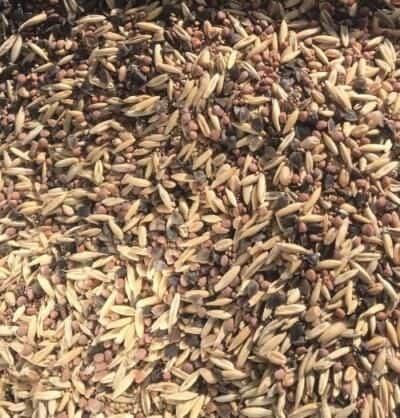
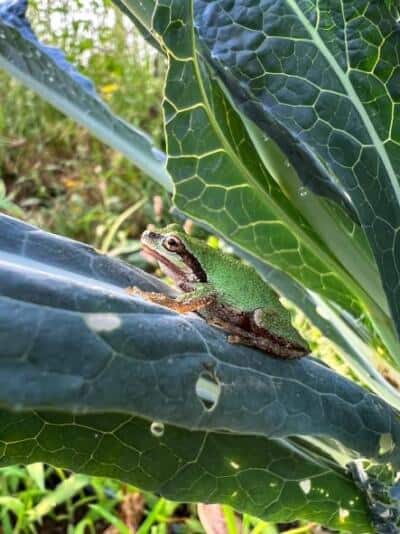
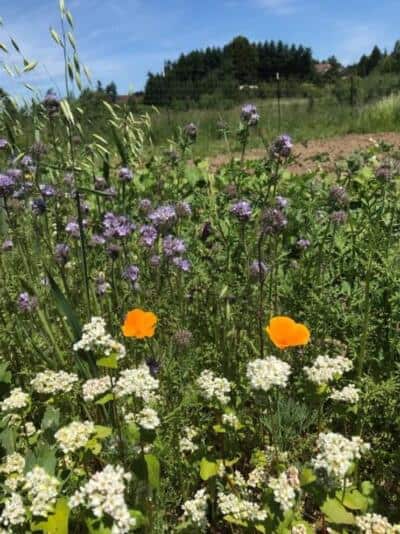



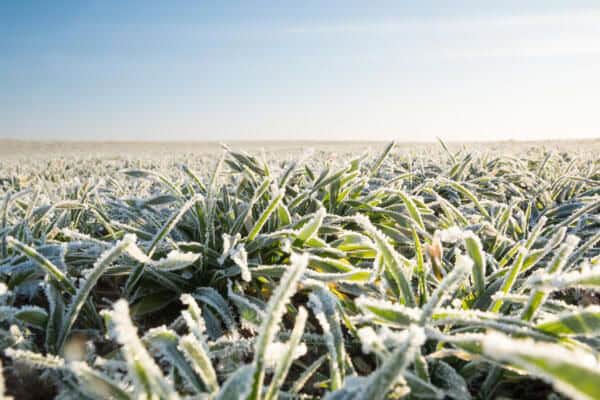
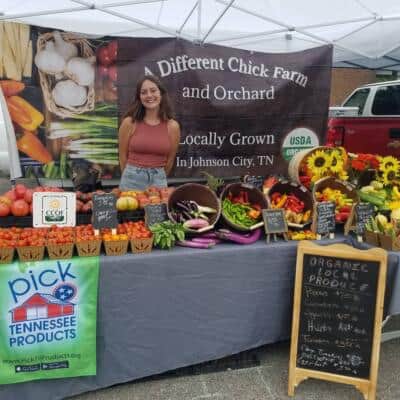
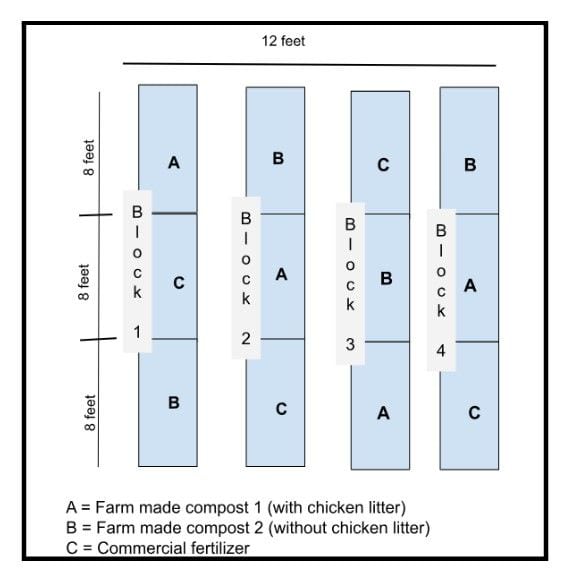


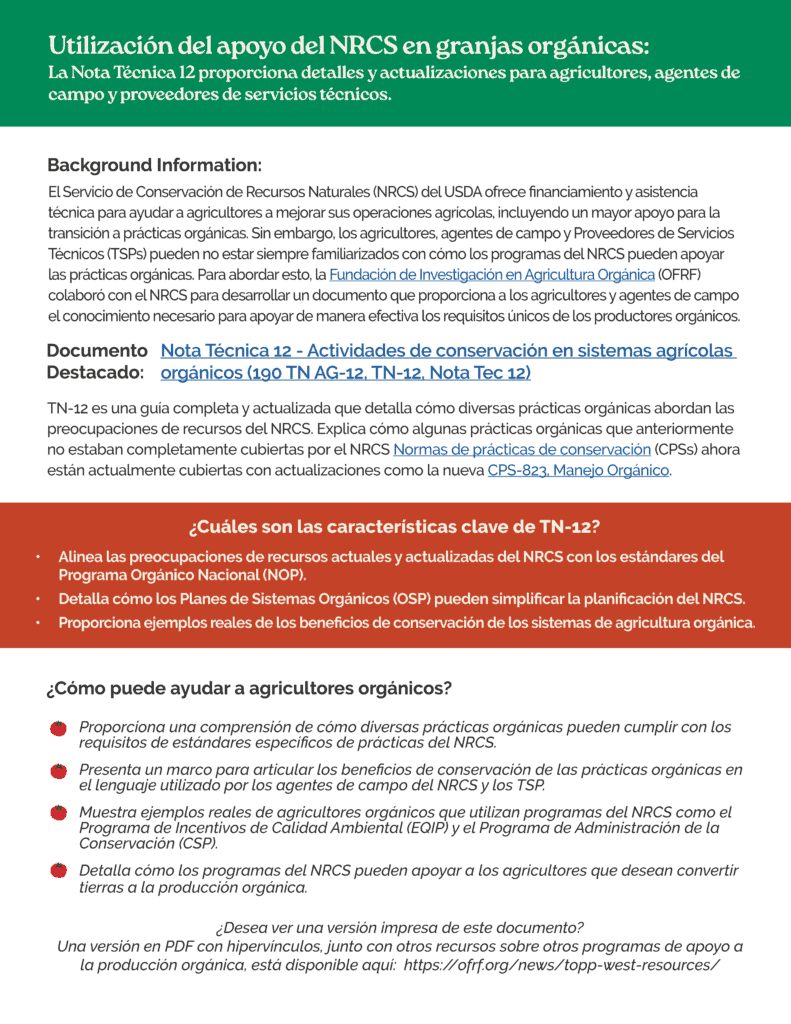
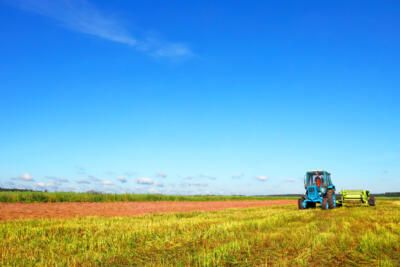

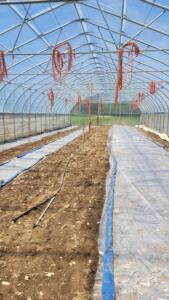
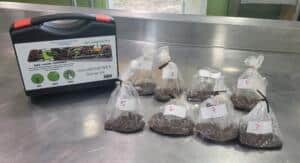



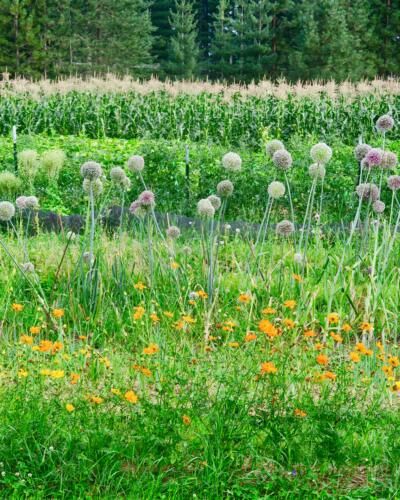
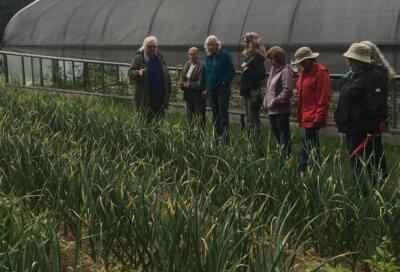
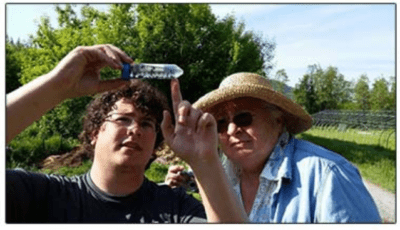


 When it comes to fertility and nutrient sources and soil life or SOM, it is a matter of balance between organic carbon inputs and nitrogen inputs (whether organic and/or synthetic).
When it comes to fertility and nutrient sources and soil life or SOM, it is a matter of balance between organic carbon inputs and nitrogen inputs (whether organic and/or synthetic).
 Glyphosate showed adverse effects in some studies, and no effect in others, and appeared less damaging to soil life than amide/anilide herbicides and most insecticides and fungicides. Possible mechanisms of glyphosate effects on soil life include direct exposure via spray reaching the soil surface or translocation of the chemical from sprayed foliage to the root system, changes in the physiological condition of treated plants that curtail or alter the composition of root exudates including chemical signals, and long-term effects of low-level herbicide exposure year after year. One concern is that, given its frequent and widespread use and sometimes overuse, glyphosate may exert significant agroecosystem impacts despite its relatively low toxicity compared to other crop protection chemicals.
Glyphosate showed adverse effects in some studies, and no effect in others, and appeared less damaging to soil life than amide/anilide herbicides and most insecticides and fungicides. Possible mechanisms of glyphosate effects on soil life include direct exposure via spray reaching the soil surface or translocation of the chemical from sprayed foliage to the root system, changes in the physiological condition of treated plants that curtail or alter the composition of root exudates including chemical signals, and long-term effects of low-level herbicide exposure year after year. One concern is that, given its frequent and widespread use and sometimes overuse, glyphosate may exert significant agroecosystem impacts despite its relatively low toxicity compared to other crop protection chemicals. Researchers have documented significant impacts of corn and soybean seed treatments (fungicides and neonicotinoid pesticides) on the crop rhizosphere microbiomes (bacteria and fungi) and on several trophic levels of the soil fauna (Atwood et al., 2018; Nettles et al., 2016). Neonic seed treatment had a greater impact on non-target soil organisms, especially predatory and mixed-feeding guilds, while having relatively little impact on the target herbivore (pest) species.
Researchers have documented significant impacts of corn and soybean seed treatments (fungicides and neonicotinoid pesticides) on the crop rhizosphere microbiomes (bacteria and fungi) and on several trophic levels of the soil fauna (Atwood et al., 2018; Nettles et al., 2016). Neonic seed treatment had a greater impact on non-target soil organisms, especially predatory and mixed-feeding guilds, while having relatively little impact on the target herbivore (pest) species.
